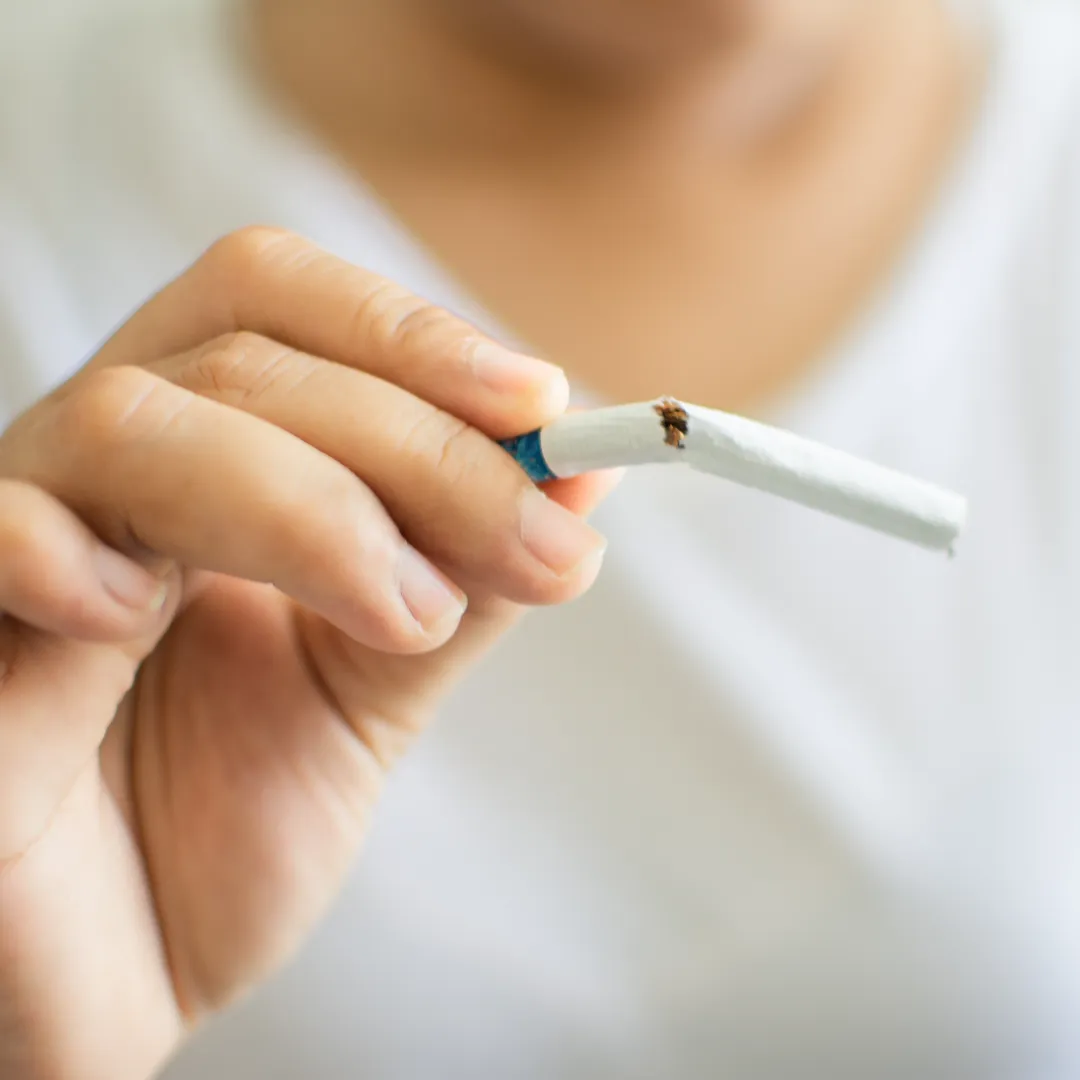この記事の概要
Hair transplant surgery is an effective treatment for many people suffering from thinning hair or hair loss, but several factors can affect the success of the procedure. Among them, smoking is known to have a significant negative impact on the outcome of hair transplant surgery. This article details the impact of smoking on hair transplant surgery and how to prevent it.
The effect of smoking on hair transplant surgery
Poor blood flow
Overview
Smoking causes blood vessels to constrict, reducing blood flow. Nicotine and carbon monoxide constrict blood vessels and reduce the blood’s ability to carry oxygen.
Impact
Decreased survival rate of transplanted hair : Poor blood flow means that the transplanted hair follicles do not receive enough oxygen and nutrients, resulting in a decreased survival rate.
Slower wound healing: Reduced blood flow can slow wound healing. This can slow post-operative recovery and increase the risk of infection.
Inhibition of collagen production
Overview
Smoking is known to suppress collagen production, which plays a key role in maintaining skin elasticity and strength.
Impact
Poor wound healing: Inhibition of collagen production slows wound healing at surgical sites and increases the risk of scarring.
Deteriorating skin health: Reduced elasticity and poor health of the skin can negatively impact the outcome of your surgery.
Weakened immune system
Overview
Smoking has a negative effect on the immune system, weakening it and making you more susceptible to infections.
Impact
Increased risk of postoperative infection: A weakened immune system increases the risk of postoperative infection. If an infection occurs, it may affect the success of the surgery.
Slower recovery: A weakened immune system slows down the body’s natural healing process, slowing down your overall recovery.
Measures for smokers and the importance of quitting smoking
Quitting smoking before surgery
Recommended Period
To maximize the success of your hair transplant surgery, it is recommended that you stop smoking for at least 2-4 weeks prior to your procedure, allowing time for blood flow, immune system and collagen production to improve.
Benefits of quitting smoking
Improved blood flow: Quitting smoking improves blood flow, which increases the chances of hair transplants taking root.
Accelerates wound healing: Collagen production is normalized, which speeds up wound healing.
Improved immunity: Your immune system will be improved, reducing the risk of post-operative infection.
Quitting smoking after surgery
Recommended Period
It is important to continue abstaining from smoking for at least one month after surgery, as this will allow blood flow, collagen production and the immune system to function normally, supporting recovery.
Benefits of quitting smoking
Improved recovery: Quitting smoking can help you recover faster after surgery.
Improved long-term results : The health and growth of transplanted hair is maintained, improving long-term surgical results.

How to help people quit smoking
Expert Support
To successfully quit smoking, it is beneficial to get professional support. Take advantage of counseling and support programs offered by doctors or smoking cessation clinics.
Smoking cessation aids
Nicotine replacement therapy (NRT)
NRT, such as nicotine gum, patches and lozenges, are an effective way to help you quit smoking. These products help reduce the withdrawal symptoms caused by quitting smoking.
Prescription medications
Prescription medications such as varenicline (Champix) and bupropion (Zyban) can also help people quit smoking. These medications can reduce the cravings that come with quitting and increase your chances of success.
Lifestyle changes
Maintaining a healthy lifestyle is important to successfully quitting smoking.
Moderate exercise
Regular exercise can help reduce stress and increase your chances of quitting smoking. Try walking, yoga, jogging, or other physical activities.
Balanced diet
A nutritious, balanced diet will help your body recover and contribute to your success in quitting smoking. Aim for a diet rich in vegetables, fruits, whole grains and protein.
Stress Management
Stress is often a trigger for smoking, so managing it is important. Reduce stress by meditating, taking deep breaths, and finding time for a hobby.
Sharing successful quitting smoking experiences
To quit smoking successfully, it is also effective to learn from the success stories of others. Take advantage of information sharing in smoking cessation support groups and online forums.
Support Groups
Quitting smoking support groups are a place to share experiences and encouragement with others who have the same goal as you. Find a local group or online community to join.
Online forums
Online forums are a great place to get information and support to quit smoking, and keep you motivated by connecting with other quitters and sharing ideas.
Conclusion
Smoking has a significant negative impact on the success of hair transplant surgery, so it is very important to quit smoking before and after surgery. To prevent the effects of smoking, such as poor blood flow, suppression of collagen production, and weakened immunity, it is recommended to continue smoking for 2 to 4 weeks before surgery and for one month after surgery. Successfully quit smoking through professional support, smoking cessation aids, and maintaining a healthy lifestyle. Quitting smoking can improve surgical results and long-term health.
Hiro Clinic Hair Transplant
Hiro Clinic recommends Natural Pro FUE treatment, which can be used on hairless areas where oral medication or injection therapy is ineffective, and leaves barely noticeable scars. Hair roots are harvested from the back of the head and partially shaved, making post-operative care easier, and only the required number of hairs are transplanted with a natural finish. It is a same-day procedure using local anesthesia, and provides gentle, gradual hair growth at an affordable price, making it a safe option in Japan.








